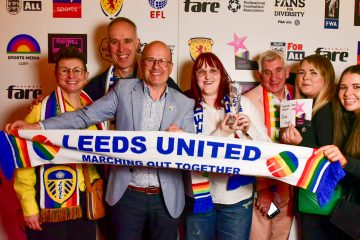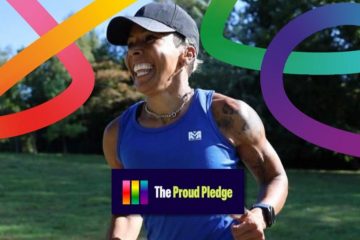World Mental Health Day is way in to talk about being LGBTQ+ in Qatar – is football listening?

Testimonies from lesbian, gay, bi and trans people experiencing persecution and prejudice within the World Cup host nation are being shared; however, influential football figures are yet to amplify their voices; theme of annual awareness day is ‘make mental health and wellbeing for all a global priority’
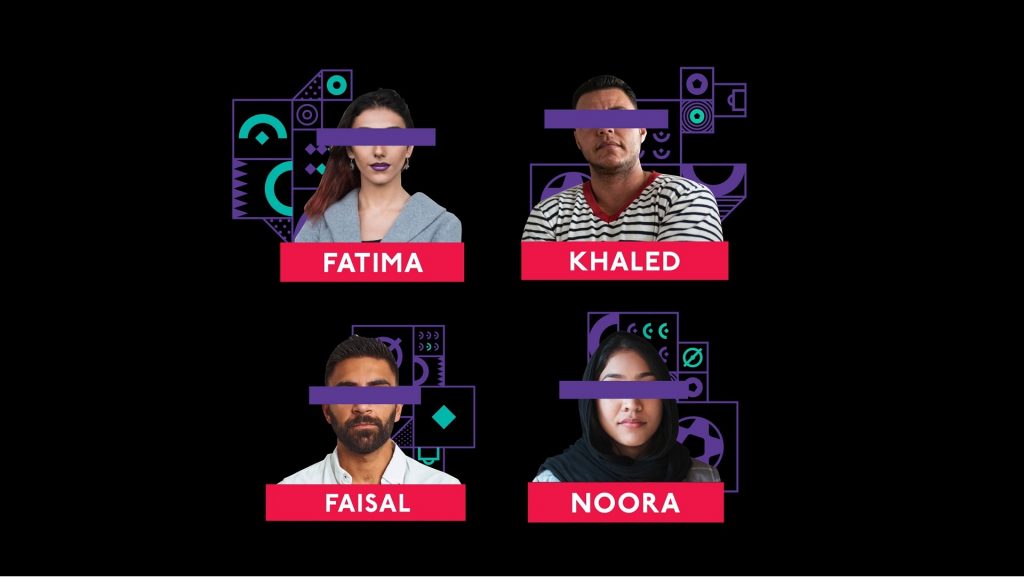
Fatima says she is “completely broken”. Khaled is closeted and isolated. Noora wakes up “depressed every day”. Faisal just feels empty.
These are just a few of the hidden figures of Qatar 2022, a tournament that’s being touted as a World Cup “without discrimination” despite the anti-LGBTQ+ laws of the land it is being played in.
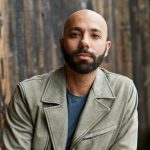
The names of the four citizens have been changed. Each has shared their story with Dr Nas Mohamed, the gay Qatari physician granted asylum in the US who has been publicly advocating for human rights since speaking to international media for the first time back in May.
Excerpts from these testimonies have been included as audio clips on All Out’s ‘Love Is Not A Crime’ campaign website. Due to understandable safety concerns, they are voiced by actors.
However, as the advertising for the World Cup drums home the slogan ‘Now is All’, it feels like time is slipping away for this marginalised minority to be heard.
Raising wider awareness is crucial for people like Fatima, Khaled, Noora and Faisal. It’s why World Mental Health Day on Monday, October 10 – which is next to Coming Out Day on the calendar – is a vital opportunity to provide a greater “sense of hope”, in the words of Dr Nas.
In a recent op-ed for Outsports, he added: “I’m asking individuals and organisations to speak up and say something… silence is not only not helpful but is actually damaging to us. Amplify my voice with yours.”
The Norwegian FA president, Lise Klaveness, has done this but so far, barely anyone else within football has come forward in vocal support. To make an impact, Dr Nas needs a player, a manager, a referee or a pundit to use their platform purposefully and spark a show of solidarity.
David Beckham won’t be the person to do that, it seems, but there is optimism that an athlete advocate will offer their allyship.
Dr Nas understands that for many people, the topic of LGBTQ+ rights within the context of this World Cup makes for an uncomfortable conversation. In addition, looking at the issue through a Western lens is counter-productive and often brings resistance.
Could the theme of mental health be an icebreaker?
Reaching out
In recent years, there have been numerous initiatives from different football governing bodies and organisations that highlight the importance of talking to boost mental wellbeing.
In the UK, there was Heads Up, championed by The FA, while the charity Mind partnered with the EFL on ‘On Your Side’. Internationally, players’ union FIFPro asked the question ‘Are You Ready To Talk?’ and UEFA made mental health a central theme of its #FeelWellPlayWell campaign.
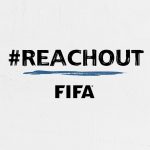
Last year, FIFA launched #ReachOut, with President Gianni Infantino stressing the importance of “encouraging a conversation which could save a life”. England captain Harry Kane launched his Foundation on Monday with an aim to “transform a generation’s thinking about mental health”.
Members of the global football family are regularly being prompted to open up, but there is a noticeable reticence to mention issues related to sexuality and gender identity, despite the disproportional effect of mental health conditions among LGBTQ+ people.
This disconnect is sadly convenient for the Qatari authorities. “I’m fully confident that by the time the World Cup starts, it’s all gonna be about football,” Nasser Al Khater, the CEO of Qatar 2022’s Supreme Committee for Delivery & Legacy (SC), told a recent media conference, as reported by Doha News. There are now only six weeks to go until the opening game.
It’s widely known that same-sex relationships are criminalised in Qatar. It’s just one part of a wider picture of rights violations that has provided a bleak backdrop to the tournament ever since then FIFA President Sepp Blatter pulled the Gulf state’s name from an envelope 12 years ago.
Migrant labourers who have died or been seriously injured in construction projects; foreign domestic workers who have been exploited or abused; women fighting for their rights in an intensely patriarchal society that still has male guardianship rules; a woeful record on press freedom… the Supreme Committee doesn’t want these talking points to be discussed either.
Meanwhile, they and FIFA continue to trot out the simple line that “everyone is welcome” at the World Cup, with the Emir and other Qatari officials frequently adding the proviso that they expect those attending to “respect our culture and traditions”. The focus has been on discouraging public displays of affection while mixed messages continue to be given about whether rainbow flags and symbols can be displayed.
In this way, being LGBTQ+ is presented as something alien, not just to Qatar but to the whole South West Asia and North Africa (SWANA) region. The aim appears to be to define sexuality by an action that a visitor might choose to do – holding hands, waving a Pride flag, kissing their partner, dancing flamboyantly.
However, mental health is a universal concern that transcends cultural divides. The stories of lived experience from inside Qatar invite empathy.
Life in the shadows
Dr Nas is in touch with around 50 individuals and groups within his homeland who are assisting him with his campaigning. This is not without risk.
For the World Cup, he has used the analogy of a fancy dinner party to which players, coaches, officials, media and fans have been invited. The hosts are wealthy and well-connected. However, the guests are told in advance that some members of the household are being kept down in the basement, mistreated and away from view.
Does this still feel like a party you would want to attend? FIFA said Qatar 2022 would be “a celebration of unity and diversity” when world football’s governing body marked Pride Month in June. For those in the metaphorical basement, the idea of such a festival is incomprehensible.
Faisal, an older Qatari man, speaks in his testimony of being taken to an underground dungeon by an undercover policeman and kept there for more than two months. His ‘crime’ was doing drag in private with his friends. He suffers from PTSD, intense depression and has occasional suicidal thoughts.
Fatima was beaten by cops and “mentally tortured” for being trans. She doesn’t speak English and can’t escape abroad.
Noora, a lesbian, is tired of fighting. Khaled only speaks Arabic and has no access to resources that might help him to navigate the experience of growing up gay in Qatar.
They know the World Cup won’t bring an end to the injustices that they and others like them routinely face, but achieving some meaningful recognition for their plight is a goal worth pursuing.
To do that through football, it will require one or more of the game’s power players to engage and talk about what the mental health ramifications of living in such a culture would be.
‘I want to feel safe’
Even forming a small support network is dangerous in a country like Qatar, which has a population of just under 3 million, only 12% of whom are citizens.
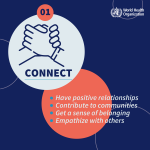
There isn’t an LGBTQ+ community as we would understand the term (the equivalent in Arabic is mujtama’ al-miim-’ayn) except for some connections made online, where extreme caution is taken around the everyday messaging we take for granted in the UK.
Secure communication is essential. Since January, I’ve been able to make contact with several Qataris through this method. To varying degrees, those who are gay are all experiencing mental health problems.
One man in his mid-40s told me how he has suffered through years of depression, a result of growing up as an effeminate boy in a male-dominated, religious culture followed by an adulthood without authenticity or self-worth.
He said that if the authorities even suspect you of being gay, this almost always results in a check of your phone. A call will be put in to a specialist sub-unit of the Ministry of Interior’s CID department. “They will come and take this guy or girl to the police. They shave their hair and they call their parents and they’ll put them in jail, with all this humiliation.”
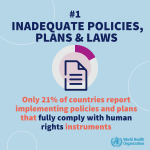
The impression you get is that LGBTQ+ people in Qatar feel trapped, particularly the younger generation. It goes beyond just the day-to-day fear of getting caught by the police.
Those who appreciate the need to take care of their sexual health have no local services to access; those who respond positively to LGBTQ+ representation in Western media don’t get to explore that culture (and all the while, censorship of platforms like Netflix and Disney+ is increasing); and then they are pressured to get married, with the prospect of a loveless future sure to bring only more sadness.
A 24-year-old who cares little for football told me he was nonetheless excited for the World Cup as it offered possibility. He explained how he had already lost his family and his social life due to being gay.
“I want to gain at least the freedom to express who I am and to find someone who will share my life with me,” he said. “But my priority is that I want to feel safe.”
A World Cup dream
More of these accounts coming out of Qatar are entering the public domain, all similar in their description of poor mental health.
A recent documentary from German broadcaster RTL Sport features a 32-year-old man called ‘Mohammed’. Wearing a black hoodie, with his face fully obscured, he tells reporter Jonas Gerdes about the heavy burden that people like him are forced to carry in the Gulf state.
“We have existential fear of punishment and death,” says Mohammed. “Society and the government fight us in very different ways.
“The police can theoretically show up at any time and take you to a secret place. They can use psychological and physical torture if they want to.”
Expats living in Qatar who are LGBTQ+ are affected too. A gay woman originally from Western Europe told Metro.co.uk in June: “You are reduced to lying to people you would normally trust, and at the end of the day you are extremely isolated and lonely.”
A report in the Gulf Times explains how Qatar’s Ministry of Public Health is marking World Mental Health Day this year, emphasising its “commitment to improve access, reduce stigma and integrate care”.
However, a very different picture is presented for LGBTQ+ people in a first-person account from a gay man called ‘Abdulla’ living in a Gulf state which was published on the website of the Peter Tatchell Foundation in June 2020.
In the blog, he writes in detail about “the prejudiced mental healthcare services” in the country in which he lives, adding that they “universally perpetuate the belief that homosexuality is a disease, even though the World Health Organisation decided being gay was not an illness in 1992 – and even though there is no “cure”.”
The WHO is a partner on FIFA’s #ReachOut campaign and has also teamed up with the State of Qatar on its Healthy 2022 World Cup project. Its theme for World Mental Health Day is ‘make mental health and wellbeing for all a global priority’.
‘Now is all’. ‘Everyone is welcome’. ‘One Love’. Short slogans are simple to say, but sharing stories of substance matters much more.
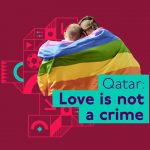
So read up on the region, and lift up the voices of Qataris like Fatima, Khaled, Noora and Faisal – people for whom a meaningful World Cup dream would be to have better mental health. There’s still time for football to make a difference.
To learn more about the ‘Qatar: Love Is Not A Crime’ campaign and to join over 70,000 people in signing the petition, visit the All Out website. You can contact Dr Nas Mohamed through his website at lgbtrightsqatar.org or via Instagram – he would welcome your support.
Sports Media LGBT+ is part of the Qatar 2022 Working Group, alongside Kick It Out, Football v Homophobia, Stonewall and the Football Supporters’ Association.
Sports Media LGBT+ is a network, advocacy, and consultancy group that is helping to build a community of LGBTQ+ people and allies in sport. We’re also a digital publisher. Learn more about us here.
We’re interested in your news and stories. Share with us and tap into a worldwide audience through our Google News affiliate website and our popular social channels with over 10,000 followers. Contact us to discuss how we can help you.
